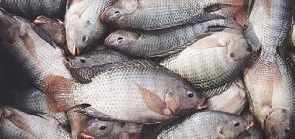The annual consumption of fish per every Ghanaian is gradually decreasing according to a Natural Resources Economist.
He said the annual consumption of fish per every Ghanaian which was at 27 kilogrammes (kg) annually has now reduced to 21 kg and noted that fish consumption had implications on the health of the nation especially in the lives of children and Fish is 60 per cent of animal protein in the country.
Professor Wisdom Akpalu, Dean, School of Research and Graduate Studies, Ghana Institute of Management and Public Administration (GIMPA) said this at a day's seminar in Accra.
The seminar organised by Environment and Natural Resource Research Initiative (ENRRI), was on the theme: "Managing Capture Fisheries in Ghana: Challenge and Opportunities."
It brought together key decision makers from the fishing sector and the participants discussed issues of natural resources management.
ENRRI-EfD is one of the 15 centres under the Environment for Development (EfD), an initiative that contribute to sustainable management of Ghana's Resources through capacity development, policy relevant research and policy engagement.
Prof. Akpalu who is also the Director of ENRRI, noted that the country imported 60 per cent of fish and produce 40 per cent of fish within the country.
"Ghana still has deficit despite the import. In 2016, Ghana spent GHC 211 million in importing fish. We can use this amount in other things." According to him, currently cod fishery had collapsed and Pacific blue tuna fish was now endangered.
He said there was the need to obtain political will to address challenges affecting the fishing sector.
He cited some of challenges as climate change, pressure from trawlers, issue of subsidies on pre-mix fuel, over fishing, use of illegal fishing gears.
Regional News of Wednesday, 19 August 2020
Source: GNA
Annual consumption of fish per Ghanaian decreasing - Natural Resources Economist
Entertainment












